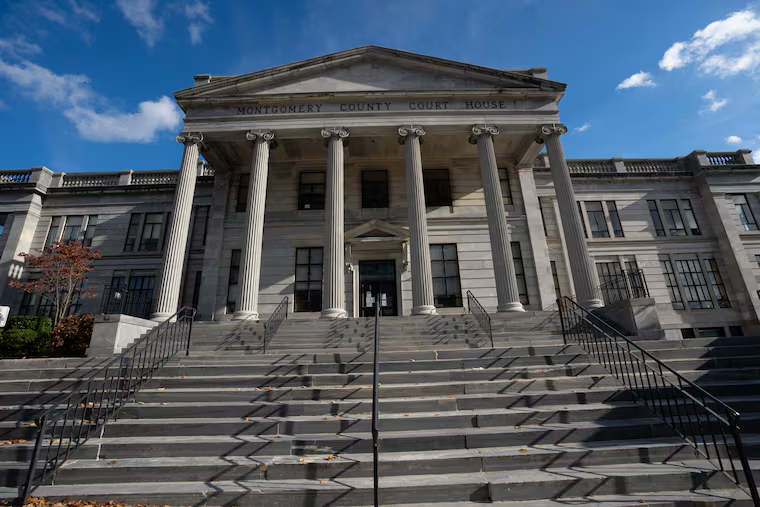Montgomery County illegally double-bills defendants for court costs, ACLU alleges in lawsuit
The ACLU alleges that, in about 1,500 cases each year, Montgomery County assessed various costs and fees for each individual charge, rather than once per case as the law allows.

When Amy McFalls was convicted of driving under the influence in Montgomery County in 2019, the judge made clear she would face both jail time and a $300 fine. What the Delaware resident didn’t expect was an alphabet soup of court costs — ATJ, CJES, JCPS, OAG-JCP, and many other mystery acronyms — totaling about $3,500.
Now, McFalls is the lead plaintiff in a class-action lawsuit filed Tuesday in Commonwealth Court alleging that Montgomery County court illegally double-billed her and other defendants for many of those costs, which were created by the state legislature to fund the operation of the criminal justice system.
“As a result of these unlawful and unconstitutional practices and policies, thousands of defendants in Montgomery County criminal cases have been taxed with, have paid in part or full, and — in many cases — still owe illegal costs that add up to hundreds or thousands of dollars per case,” the filing by the ACLU of Pennsylvania says.
A Montgomery County spokesperson did not respond to a request for comment Tuesday.
The ACLU alleges that, in about 1,500 cases each year, Montgomery County assessed various costs and fees for each individual charge, rather than once per case as the law allows. The organization identified 12,918 affected people.
“A big point of our lawsuit is to get them to cancel the illegal debt,” said Mary Catherine Roper, deputy legal director at the ACLU of Pennsylvania. “There are thousands of people who are the subject of collections proceedings in Montgomery County, who are being asked for more money than they owe.”
» READ MORE: Pennsylvania judges are sentencing people for debts they won’t ever be able to pay
After the organization wrote a letter urging reform in 2018, the rate of double-billing declined. But it did not cease, and still affects hundreds of defendants each year. The ACLU alleges the county opted not to eradicate the practice and instead to institutionalize it, “adopting a policy that allows judges of the Court of Common Pleas to exercise arbitrary discretion to impose duplicative costs.”
The organization first learned of the problem when a defendant was billed numerous times for a case involving a slew of criminal charges. It has since uncovered double-billing in other counties as well, but sued Montgomery County only because requests to resolve the issue were not satisfied, Roper said.
It’s unclear whether the double-billing was intentional, or if judges even knew it was taking place.
The costs were, in some cases, imposed on people who were acknowledged to be unable to pay, and were represented by public defenders. Another named plaintiff, Jason Crunetti, was double-billed even after his sentencing judge agreed to waive costs related to his intoxicated-driving conviction, due to Crunetti’s indigence.
» READ MORE: How probation detainers can keep people locked up indefinitely — even when they haven't committed a crime
Across the region, counties including Montgomery routinely impose hundreds of dollars in court costs on such indigent defendants — many of whom remain in debt to the court even a decade after the case was resolved. “For cases adjudicated in 2010, 86% of fines, 45% of costs, and 70% of restitution remain unpaid,” an ACLU report published last month found. That exposes those tens of thousands of defendants to penalties from disruption of food stamps to revocation of their driver’s license to incarceration.
With the addition of collection fees, those debts only balloon, Roper said. “You’re never done. When you then start adding on illegal charges, you just make it harder for people to move on.”